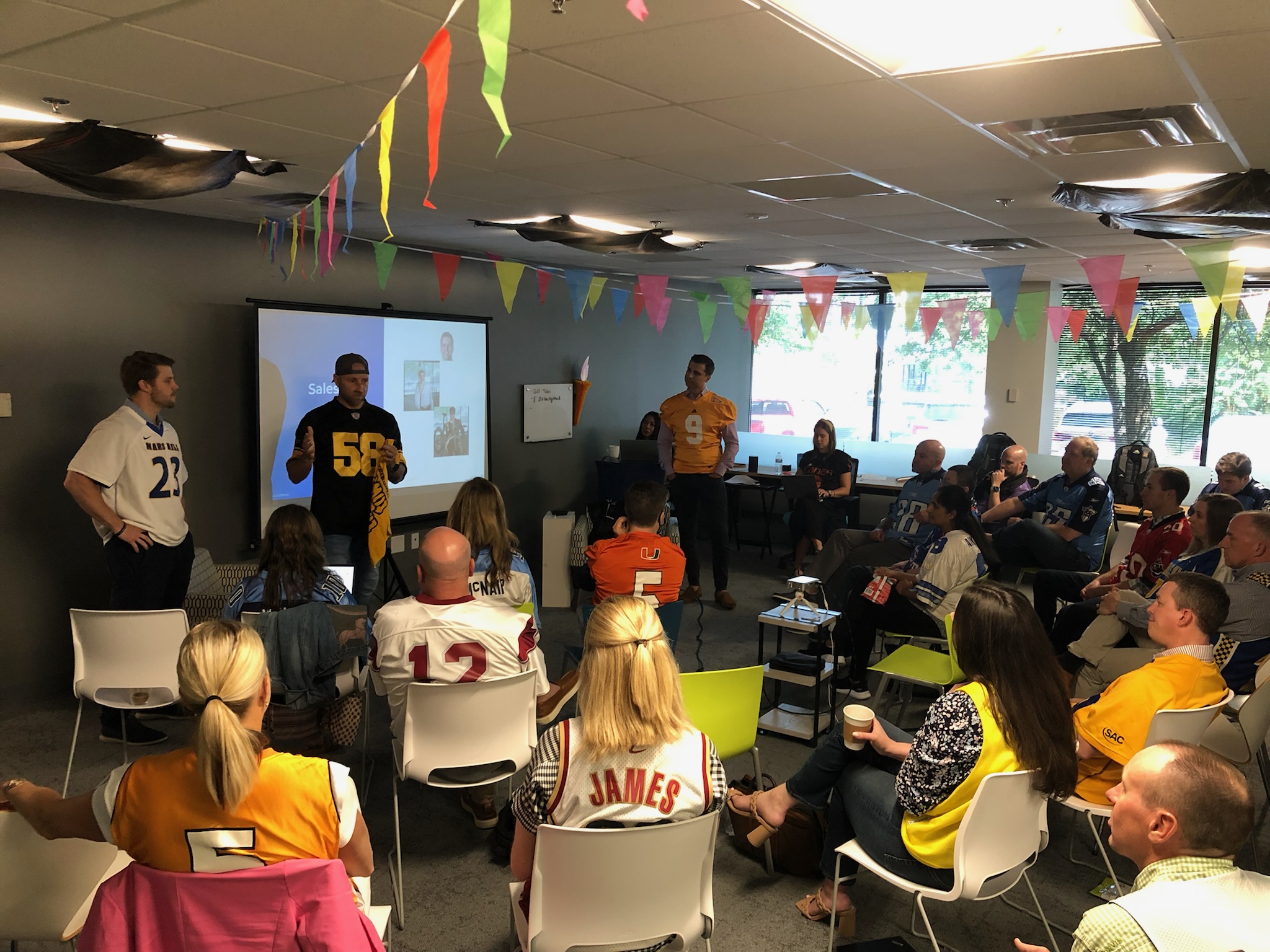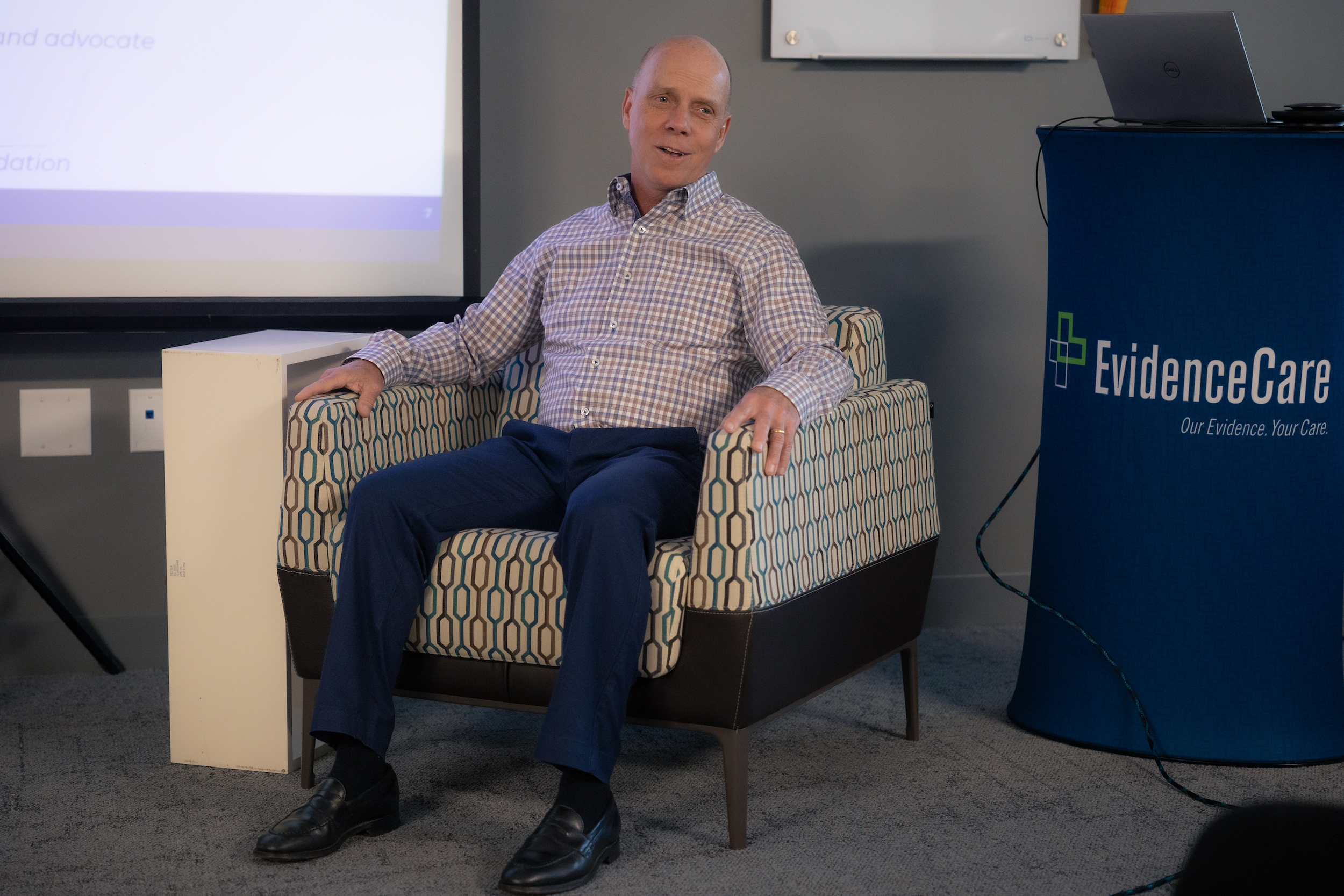The genesis of EvidenceCare came one night while Dr. Brian Fengler was working in the emergency room of Saint Thomas Midtown Hospital in Nashville, and a young woman presented with extreme shortness of breath and fast heart rate.

She had a massive blood clot between her heart and lungs. She was also 36 weeks pregnant.
As a resident at the University of Virginia, Dr. Fengler authored a treatment protocol on how to treat pulmonary embolisms, which is exactly what this patient had. Despite being an expert on this condition, he was at a loss when faced with this patient. Although he knew exactly how to treat the patient, he did not know how the treatment would affect her unborn baby.
Co-founder and Chief Medical Officer, Dr. Brian Fengler
Like 80% of the decisions made in healthcare, Dr. Fengler went online to search for evidence to support the treatment he felt was best. But he was unable to find this information quick enough and, in the end, was forced to make a snap decision without the benefit of evidence.
While this case resulted in both a healthy mother and baby, the experience left him acutely aware of the massive gap in evidence-based information available to healthcare providers when they need it most.
Fellow Co-Founder, Jim Jamieson, also realized a related issue after spending years in the revenue cycle side of the healthcare industry. When he started working with Dr. Fengler, it became clear that there was a need to get healthcare providers back to doing what they loved most, taking care of patients, and out of the “business” of healthcare.
Providers and their patients deserve the assurance that the right care is delivered at the right time, every time. They created EvidenceCare to help do just that.
They began working together in 2016 to create a solution that would minimize the time healthcare providers spent searching for clinical answers and automating evidence-based guidance within their EHR workflow.

While Dr. Fengler and Jamieson were building the initial EvidenceCare products, CarePathways and AdmissionCare, another doctor in Texas was creating software to solve another issue.
Dr. George Fidone was tired of physicians getting blamed for high costs and variations of treatments, while not being given any tools that would provide visibility into their care decisions. Similar to Dr. Fengler, he saw an opportunity for technology inside the EHR where the physician was already working to be the solution.
Co-founder and Chief Revenue Officer, Jim Jamieson
Dr. Fidone worked with a team to create CareGauge, which gives physicians real-time insight into the cost and utilization of their treatment decisions as compared to patients who were treated with that same condition.
Seeing CareGauge as an innovative addition to their suite of products,
EvidenceCare acquired the company who created CareGauge in 2021.
Today, EvidenceCare has an evidence-based clinical decision support system (CDSS) that integrates into the top EHR systems in health systems across the country.
The mission of the company is to optimize clinician workflows to deliver better care, improved outcomes, and increased revenue.

There are a lot of clinical decision support tools available in the market, but they all require clinicians to leave the EHR or sign-in to another platform. This only adds technology burden to already burned-out clinicians.
EvidenceCare has built an incredible team of developers and EHR experts to ensure products are integrated into physician’s EHR workflows, removing friction and inefficiency in their processes.
So what does each product specifically accomplish?
AdmissionCare addresses the pervasive issue of patients getting placed in the wrong bed status. This leads to improper documentation, patient dissatisfaction, and massive revenue loss to the hospital. The problem is that physicians weren’t trained on bed status criteria in school and can’t keep up with constant changes in those criteria. AdmissionCare puts the criteria for bed status determinations directly in the EHR, making the admission process easier and removing negative downstream effects.
Scott Hamilton gives Keynote Address to EvidenceCare team at annual employee gathering
As mentioned above, CareGauge solves the problem of physicians not having any visibility into care variation and cost, which leads to prescribing and ordering low value treatments. The patented and award winning CareGauge gives physicians zero-click transparency into care utilization with non-invasive gauges that reveal peer-based care patterns. This visibility has proven to reduce average discharge costs and length of stay.
ImagingCare was created in direct response to the Appropriate Use Criteria (AUC) mandate, which required ordering physicians to consult a Clinical Decision Support Mechanism (CDSM) when ordering advanced imaging scans. Although helpful for avoiding over-ordering, it created another burden for physicians. ImagingCare makes it easy by auto-populating order information inside the EHR to fulfill the mandate.
And lastly, CarePathways – the inaugural product of EvidenceCare – addresses the specific issue Dr. Fengler had in the ER all those years ago. Clinicians can’t keep up with ever-changing guidelines and best practices that live in inefficient stacks of PDFs and online medical journals. CarePathways embeds leading evidence-based guidelines directly into clinicians’ EHR workflow with an easy-to-use interface that requires fewer clicks and less searching.














